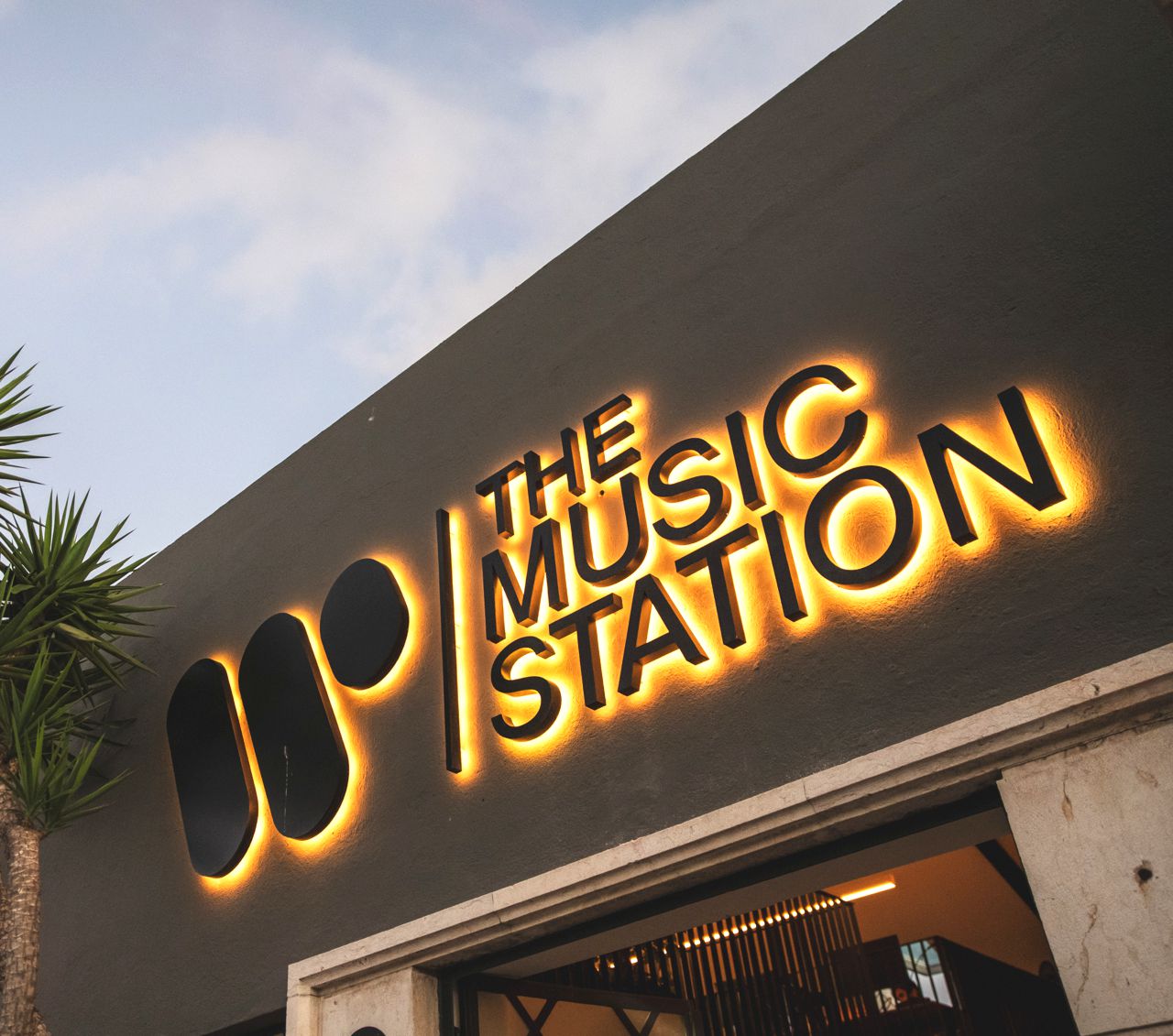The Music Station (Warner Music), has been a tremendous success on the night of its opening in Lisbon.
The music industry has undergone an irreversible change, and there’s no point in debating whether it’s for better or worse. It’s true that commercial recording studios are experiencing tough times, and a significant percentage of them have closed.
Similarly, few record labels have managed to escape the wave, leaving the super-companies—those not only focused on music distribution but also involved in film and other audiovisual activities, such as Sony, Universal, and Warner.
For the past couple of years, Warner Music has been investing in the creativity of its artists, composers, and producers in a rather unusual way.
Here in Spain, Warner has set up The Music Station in Madrid, and now it was Lisbon’s turn.

Under the management of João Teixeira, The Music Station in Lisbon was inaugurated on September 26th in one of the newly renovated warehouses along the banks of the Tagus, right next to the Cais do Sodré station. This train station, from which the Cascais and Sintra lines depart, is in a privileged location just steps away from one of the most beautiful estuaries on the peninsula—the Tagus River estuary.

The building, located on Rua da Cintura do Porto de Lisboa, right next to the Lust in Rio nightclub, features a stage where performances by Mariza, Maninho, and Nuno Ribeiro featuring Ainoa Buitrago could be enjoyed by over three hundred attendees. This came after the presentation of the whole project by Guillermo Gonzalez, President of Warner Music Group’s Iberian Division, Paulo Miranda, AR of Warner Portugal, and João Teixeira, General Manager of WM Portugal.

 |
 |
 |
The Hub is available to creators 24 hours a day, every day of the year. Users can access it through an app that grants entry to enjoy its excellent facilities and equipment. The space includes two recording studios, designed by Pedro Villas, a young, award-winning Portuguese sound engineer with extensive experience in the Portuguese market, which share a common recording room. Reflexion Arts provided all the equipment, with the list carefully compiled under the guidance of Villas.
At the center of each control room the Buso Audio’s Artist desks are equipped with Heritage Audio HA73X2 preamps, Black Lion Bluey 1176 compressors, Furman PS8R-E III power conditioners, Arturia Keylab Essential keyboards, and Universal Audio Apollo Twin X Duo interfaces, plus an Audient ID14.

The setup also includes Klotz cabling and patch bays with Neutrik connectors, complemented by a collection of microphones including Manley Reference Cardioids (2), Neumann KM184s (2), and Shure SM7Bs mounted on K&M stands. Musicians listen through Beyerdynamic DT150 headphones, an industry standard, amplified by a Rolls RA53B.

Monitoring in the smaller control room is provided by KRK V6S4 speakers, placed on Zaor Stand Croce 42 stands with an S12 G4 subwoofer, while the main control room is equipped with tri-amped Quested VQ3110 monitors with QSB15 subs, processed and amplified by the Quested SBC800.

This system, from one of the most prestigious monitor brands of all time —Hans Zimmer refuses to use anything other than Quested since Roger Quested first offered him a trial in his UK studio—is truly the standout feature of the Warner Music Station recently opened in Lisbon. Reflexion Arts is proud to be the Iberian distributor of this brand which, with Roger at the helm, continues innovating without compromising on the most important elements: precision and sonic quality in its designs.
In summary, Warner Music is forging a new path with a unique perspective, providing a work and collaborative environment for all its creators—a very serious commitment.
 |
 |
 |




